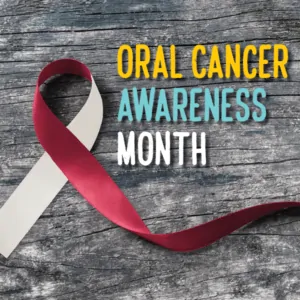
Asthma & Dry Mouth
Since asthma causes the airways that carry oxygen to and from your lungs to become swollen, less air is able to pass through. This can make breathing difficult. When we can’t get enough air or just can’t seem to catch our breath we will involuntarily start to breathe out of our mouths instead of our noses. While mouth breathing can make it easier to breathe, it can also cause dry mouth. Dry mouth occurs when there’s a decrease in saliva production, and that’s when the problems start. Without saliva, the bacteria and acids in the mouth that are typically rinsed away are left to attack teeth. This increases the risk for decay and cavities. Many asthma medications also list dry mouth as a side effect, which can make the problem even worse.
Asthma & Gum Disease
Besides the increased risk for cavities, asthma patients are also more likely to have gum disease. In fact, a survey conducted by the Journal of Periodontology concluded that people with gum disease were five times more likely to also have asthma. Gum disease is another serious disease caused by a bacterial infection. If not treated gum disease can affect the health of the rest of the body including increasing the risk for heart disease, even more respiratory complications, and even some cancers.
How to Protect Your Smile
If you have asthma, there are steps you can take to reduce your risk of cavities and gum disease including:
Drinking Plenty of Water. The more water you can drink every day, the better. Just as water helps hydrate the body, it does the same for your mouth. Drinking water can help rinse away the bacteria that your saliva is usually responsible for.
Rinsing After Taking Medication. Since many asthma medications can contribute to dry mouth, it’s wise to rinse your mouth with water after taking any medicine. This can help remove any of the drying ingredients.
Brushing and Flossing Regularly. It’s always important to brush and floss every day, but perhaps even more so if you have asthma. Brushing twice a day and flossing once a day can help remove bacteria and plaque that could lead to cavities or gum disease.
Talking to Your Dentist in Asheboro. At your dental appointments your team will ask about your health history. It’s important that you let them know you have asthma and share which medications you use so they can keep a close eye on your dental health.
We’re always welcoming new patients at our Asheboro dental office and would encourage you to call to schedule an appointment if it’s been more than six months since you’ve seen a dentist. Preventive dental care, along with a good oral hygiene routine at home, can help protect your smile from cavities, gum disease, and other oral health concerns.















